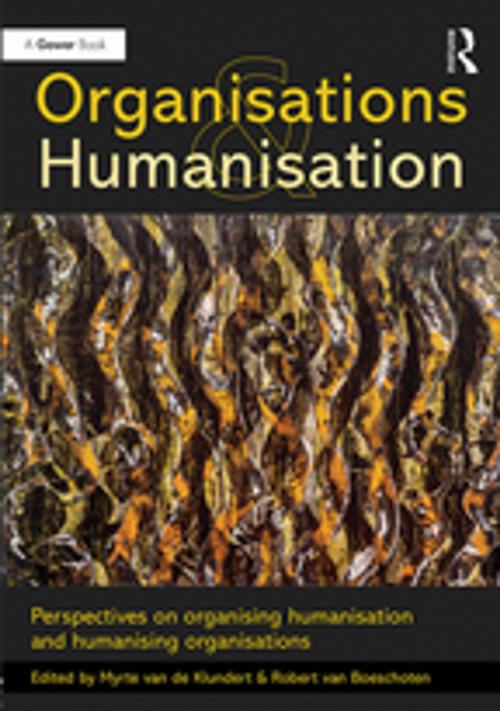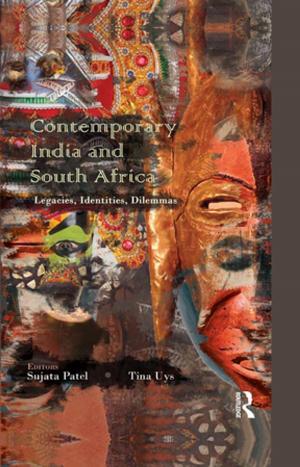Organisations and Humanisation
Perspectives on organising humanisation and humanising organisations
Business & Finance, Business Reference, Business Ethics, Human Resources & Personnel Management, Organizational Behavior, Management & Leadership, Management| Author: | ISBN: | 9781317085119 | |
| Publisher: | Taylor and Francis | Publication: | June 23, 2016 |
| Imprint: | Routledge | Language: | English |
| Author: | |
| ISBN: | 9781317085119 |
| Publisher: | Taylor and Francis |
| Publication: | June 23, 2016 |
| Imprint: | Routledge |
| Language: | English |
The term humanisation was introduced in humanistic studies to develop a humanist way of thinking about organisations and human relations. It stems from a need to think about questions of justice and living a good life in practice but not from some absolute or abstract point of view. As it is often framed, humanisation is concerned with working towards a more human type of organisation.
Organisation studies are concerned with understanding organisations and their role in our society, and developing perspectives and methods to improve them, while humanisation theories, on the other hand, do not represent a managerial blueprint as they tend to incorporate notions of situated knowledge, sense-making and relational value, drawing our attention to specific processes rather than offering universal truths. Although Critical Management Studies counters mainstream managerialism, it still tends to produce the same kind of ‘truths’ that are supposed to apply to all organisations.
Much of the existing management literature is related to control and offers strategies on how to do things but this is not about prescriptions, rather how to explore possibilities from both theoretical and practical perspectives. It offers managers as well as theoreticians of organisations the possibility to question their grounding principles. In the variety of contributions to this book the authors reflect on their understanding of what it is to be human and whether this can be found in the way that organisations are run. They consider the value of humanisation to understand and intervene in organisations and the challenges they face.
The term humanisation was introduced in humanistic studies to develop a humanist way of thinking about organisations and human relations. It stems from a need to think about questions of justice and living a good life in practice but not from some absolute or abstract point of view. As it is often framed, humanisation is concerned with working towards a more human type of organisation.
Organisation studies are concerned with understanding organisations and their role in our society, and developing perspectives and methods to improve them, while humanisation theories, on the other hand, do not represent a managerial blueprint as they tend to incorporate notions of situated knowledge, sense-making and relational value, drawing our attention to specific processes rather than offering universal truths. Although Critical Management Studies counters mainstream managerialism, it still tends to produce the same kind of ‘truths’ that are supposed to apply to all organisations.
Much of the existing management literature is related to control and offers strategies on how to do things but this is not about prescriptions, rather how to explore possibilities from both theoretical and practical perspectives. It offers managers as well as theoreticians of organisations the possibility to question their grounding principles. In the variety of contributions to this book the authors reflect on their understanding of what it is to be human and whether this can be found in the way that organisations are run. They consider the value of humanisation to understand and intervene in organisations and the challenges they face.















